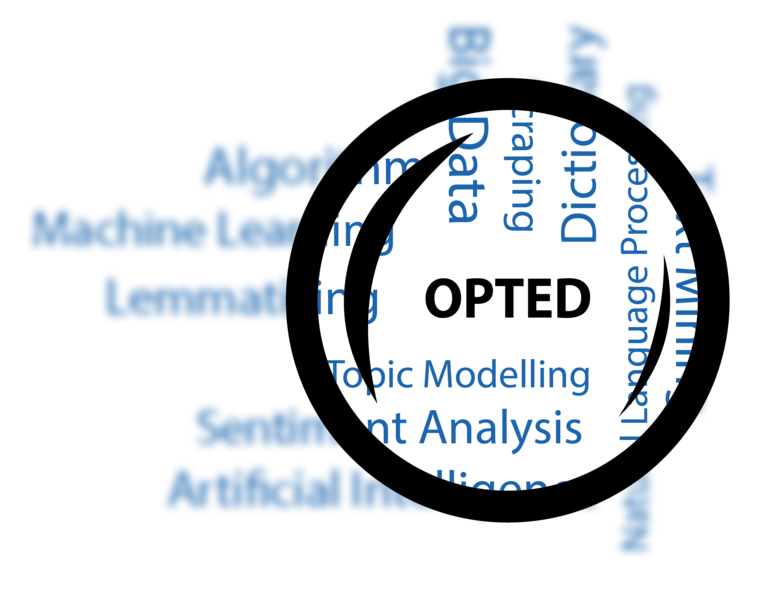The 5th ANNUAL COMPTEXT Conference was held in Glasgow this year, on 12-13 May 2023. COMPTEXT is an international community of quantitative text analysis scholars in political science, international relations, and beyond.
OPTED sponsored four panels this year. In Panel 5: Understanding Parliamentary Data, four papers were presented: “Preprocessing plenary protocols: A practical guide to splitting protocols of legislative debate into individual speeches” (by Morten Harmening and David Beck), “Grand-Standing Instead of Policy-Making: Legislators, Parliamentary Questions and Transitional Justice in the Croatian Parliament” (by Lanabi La Lova and Denisa Kostovicova), “Focused debate or party-political theatre? Assessing the bill focus of parliamentary debates” (by Lukas Hetzer, Sven-Oliver Proksch, Christian Rauh, Jan Schwalbach, and Miklós Sebők), and “Speaking Styles, Specialization and Seniority: An Analysis of Parliamentary Speeches in the Austrian Nationalrat” (by Marcelo Jenny and Christoph Ivanusch).
Another OPTED-sponsored panel, Panel 21: Validation Techniques, consisted of the following papers’ presentations: “In search of solid ground – A novel validation framework for text-based measures of social science constructs” (Lukas Birkenmaier, Clemens Lechner, Claudia Wagner), “A framework for validating multilingual computational text analysis” (Martijn Schoonvelde, Alona Dolinsky, Mariken van der Velden), “Polarized, but how? Positional and non-positional foundations of polarization in parliamentary speech” (Hauke Licht, Sven-Oliver Proksch), and “When do computational methods produce valid data? Combining active and transfer learning to produce valid political data from text” (Moritz Laurer, Wouter van Atteveldt, Andreu Casas, Kasper Welbers).
Panel 23 was titled Multilingual Analysis, and the four papers presented in the panel were: “Multilanguage Word Embeddings for Social Scientists: Estimation, Inference and Validation Resources for 157 Languages” (Arthur Spirling, Elisa Wirsching, Pedro L. Rodriguez, Brandon M. Stewart), “Automatically finding Actors in Texts: A performance review of multilingual named entity recognition tools for political texts” (Paul Balluff, Hajo G. Boomgaarden, Annie Waldherr), “‘Multilingual Political Content Classification across Time and Space: An evaluation” (Sebastian Popa, Brian Boyle, Zoltán Fazekas), and “‘The Unforced Force of the Better Argument? Computationally Assessing Argument Quality in Parliamentary Debates” (Hannes Salzmann, Nils Düpont, Gabriella Skitalinska, Henning Wachsmuth).
Lastly, OPTED sponsored Panel 25: Tools & Best Practices, in which five methodological papers were presented: “R vs. Python: The Use of Software Tools for Computational Social Science” (Marvin Stecker, Paul Balluff, Celina Dinhopl, Fabienne Lind, Hajo G.Boomgaarden, Annie Waldherr), “Exercises in NLP based emotion topology” (Hubert Plisiecki, Adam Sobieszek), “StorySurvey (presentation 1): A simple web app for eliciting composite casual maps from multiple respondents” (Steve Powell), “A power model of the global flows of political information” (Jakub Stauber, Michal Parizek), and “Fiscal Policy in the Bundestag: Textual Analysis and Macroeconomic Effects” (Albina Latifi, Viktoriia Naboka, Peter Tillmann, Peter Winker).

